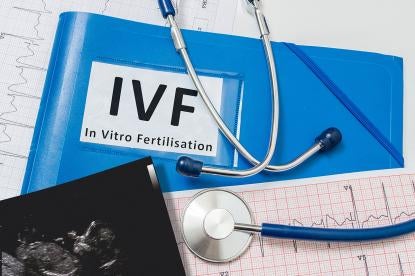Recent legal developments in Alabama demonstrate that fertility care stakeholders should be prepared for additional state regulation of in vitro fertilization (“IVF”) services, particularly in states that sought to restrict abortion access following the U.S. Supreme Court’s 2022 decision to overturn Roe v. Wade in Dobbs v. Jackson Women’s Health Organization (“Dobbs”).
Like several other state high courts, the Alabama Supreme Court has long recognized that the Wrongful Death of a Minor Act (the “Act”) recognizes the personhood of “unborn children.” A recent Alabama Supreme Court decision, LePage v. Center for Reproductive Medicine, P.C. (“LePage”), expanded the Act’s definition of “unborn children,” effectively recognizing that embryos fertilized and subsequently cryopreserved through the process of in vitro fertilization (“IVF”) are also persons and therefore covered under the Act. LePage has severely disrupted access to fertility care services in Alabama. Currently, several Alabama health care facilities, hospitals, and fertility clinics have paused IVF and related services until further state guidance is issued.
Apart from uncertainty regarding the future of IVF access in Alabama, the LePage decision indicates that several states may be inclined to increase regulatory scrutiny of IVF and other assisted reproductive technology (“ART”) services in the months and years ahead. ART regulation will likely be left to the states, rather than the U.S. Congress or U.S. Supreme Court, for two reasons: (1) decisions such as LePage reflect a state supreme court’s final decision on a state police power, which the 10th Amendment to the U.S. Constitution protects as a sovereign state activity; and (2) any proposed federal legislation that would encumber ART access in a manner similar to LePage is not likely to become law, because both President Biden and former President Donald Trump, the likely Republican Presidential nominee in 2024, have publicly stated their disagreement with the LePage opinion, and therefore either would be inclined to veto a proposed federal law to grant personhood to cryopreserved embryos. Thus, while federal law activity is currently less of a concern, fertility care stakeholders should pay close attention to pending state legislation and court decisions that could impact ART access in the short term.
The outcome of state law activity in the area of ART regulation, particularly the personhood status of cryopreserved embryos, remains uncertain. Key decision-makers have demonstrated mixed reactions to LePage. Indeed, there appears to be a general divide among even conservative lawmakers and jurists on the question of whether cryopreserved embryos are persons for the purposes of state law.
For example, Alabama Supreme Court Justice Mendheim concurred with the result in LePage but urged the state legislature to clarify the definition of “unborn child” under the Act, citing that the Act, which first became law in 1872, was enacted before “IVF was even a possibility.” Further, although Alabama statutes and court precedents contain some of the narrowest legal exceptions for abortion services among the 50 states, both Democratic and Republican Alabama state legislators are poised to amend state law with an eye toward preserving ART access. Shortly after the LePage decision, five Democratic state lawmakers introduced H.B. 225, a proposed law that would provide that “any fertilized human egg or human embryo that exists outside of a human uterus is not considered an unborn child or human being for any purpose under state law.” Additionally, State Sen. Tim Melson (R), the Senate Health Care Committee Chair, promised to introduce legislation that would clarify that “a human egg that is fertilized in vitro… should not be legally considered a human life until it is implanted in a uterus.”
Like Alabama, other states that have restricted abortion access are primed to more closely regulate ART services. States to watch include Idaho and Texas, two of the most abortion-restrictive states in the country. These states have introduced legislation that would increase regulatory scrutiny of ART, although not necessarily prohibit the practice of ART altogether. For example, Idaho House Bill 40 (2024) would “redesignate” the term “embryo” to “preborn child,” but qualify in its criminal statutes that a preborn child is “in utero.” Further, in its most recent legislative session, Texas lawmakers introduced legislation that would amend existing law that criminalizes an act against “an unborn child at every stage of gestation from fertilization until birth.” In particular, the bill would change the word “gestation” to “development.” If the bill had been enacted, this shift would have arguably provided a basis to criminally prosecute an act that harms a cryopreserved embryo, because “gestation” could be read to apply to only those embryos in utero, whereas “development” could be interpreted to mean any embryo that exists, whether it is implanted in a uterus or not.
The bottom line of the LePage decision and analogous statutory law in various states is this: In the post-Dobbs era, some state lawmakers intend to more closely regulate the fertility care industry. Polsinelli is tracking developments and is available to assist industry stakeholders navigate anticipated changes in laws governing IVF, ART and other related fertility care services.





 i
i


